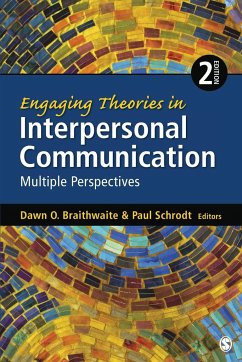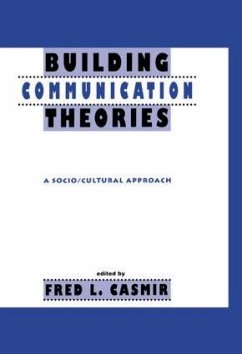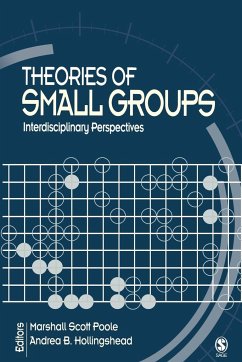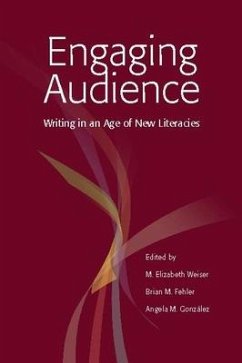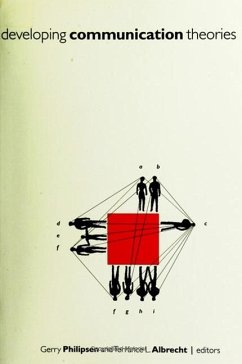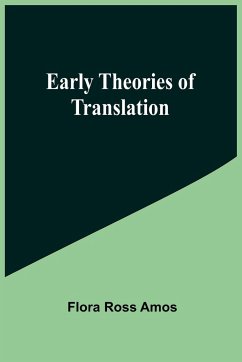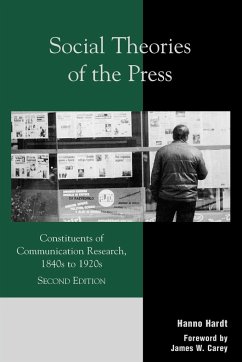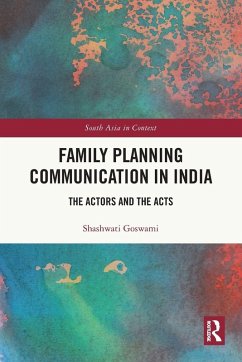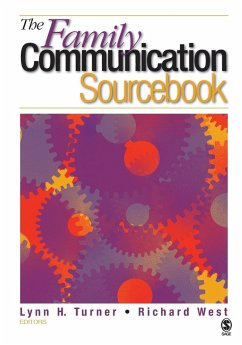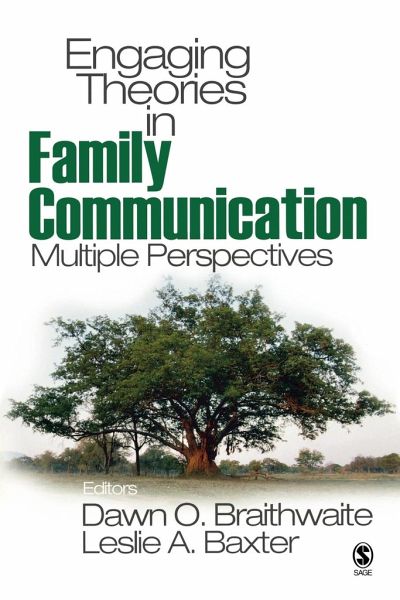
Engaging Theories in Family Communication
Multiple Perspectives
Herausgeber: Braithwaite, Dawn; Baxter, Leslie A.
Versandkostenfrei!
Versandfertig in 1-2 Wochen
150,99 €
inkl. MwSt.

PAYBACK Punkte
75 °P sammeln!
To date, scholars from disciplines other than communication have dominated the study of family communication, and theory has never been positioned as the centerpiece of a book dealing with this subject matter. Engaging Theories in Family Communication covers uncharted territory in its field, as it is the first book on the market to deal exclusively with family communication theory. Its editors (Dawn O. Braithwaite and Leslie A. Baxter) and contributors (including Valerie Manusov, Tamara Golish, Fran Dickson, Julia Wood, Kory Floyd, Sandra Petronio, Beth LePoire, Kathleen Galvin, Mary Ann Fitzp...
To date, scholars from disciplines other than communication have dominated the study of family communication, and theory has never been positioned as the centerpiece of a book dealing with this subject matter. Engaging Theories in Family Communication covers uncharted territory in its field, as it is the first book on the market to deal exclusively with family communication theory. Its editors (Dawn O. Braithwaite and Leslie A. Baxter) and contributors (including Valerie Manusov, Tamara Golish, Fran Dickson, Julia Wood, Kory Floyd, Sandra Petronio, Beth LePoire, Kathleen Galvin, Mary Ann Fitzpatrick, and Anita Vangelisti) compose a veritable Who's Who in the family communication field. As a core text or a companion text to other topically-based family communication texts, Engaging Theories in Family Communication is written at the level that advanced undergraduate and graduate students can understand, and it will be a valuable resource for scholars, and have applicability and interest coming from family studies, sociology, and psychology as well. Key Features: There is no other book on the market that focuses specifically on family communication theories. Twenty theories, both classical and cutting-edge, each covered in a separate chapter in the volume, each dealing with: (1) purpose of the theory, (2) major features as relevant to the understanding of family communication, (3) how the chapter fits into the section in which the editors have placed it (theories in family communication, theories of communication, theories of family communication), (4) how this theory has been used to understand communication in the family and how this theory could be used to understand communication in the family, (5) strengths and limitations of the theory to shed light on family communication, and (6) research directions for future researchers using this theory The editors (Braithwaite and Baxter) and contributors represent a virtual "Who's Who" of leading scholars in the field of family communication





